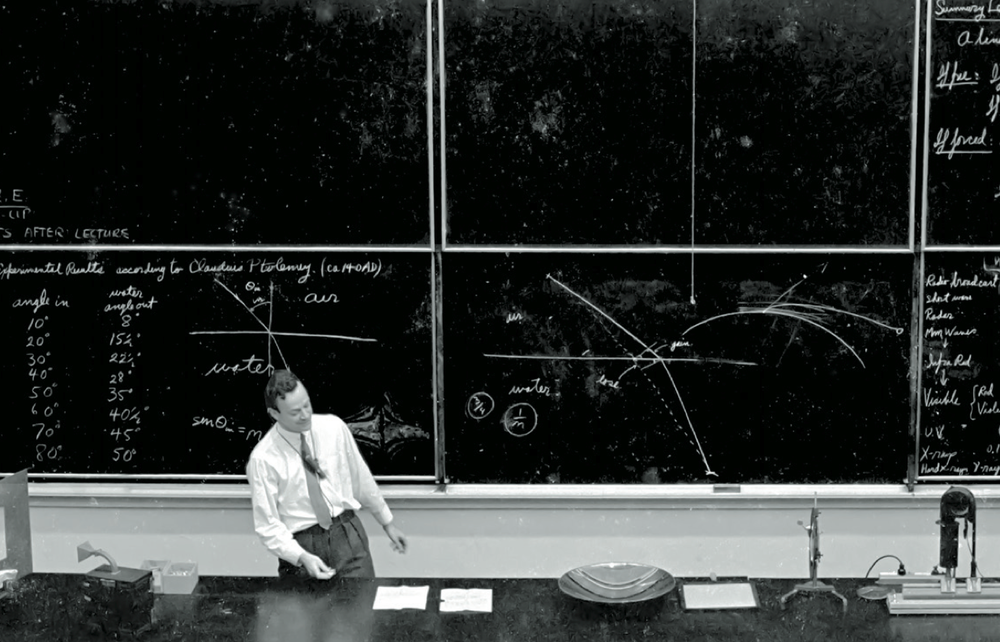“I do not feel obliged to believe that the same God who has endowed us with sense, reason, and intellect has intended us to forgo their use,” observed Galileo Galilei in a 1615 essay. Galileo became a dominant figure in the transformation of Western philosophy into modern science.
Science is a process that follows rules. Strict rules. Otherwise, it’s not science. According to Richard Feynman (1965 Nobel Prize in physics) we examine nature using scientific method by the following process.
- First, we guess it (make a hypothesis).
- Then, we compute the consequences of the guess – to see if this guess is right, what it would imply.
- Then, we compare those computational results to nature. Ie., by experimentation or experience to see if it works. If the results of your computation disagrees with the experiment, your guess is wrong.
That last statement, as simple as it sounds, is the key to science. “It doesn’t matter how smart who made the guess or what his name is. If your results disagreed with the experiment, it’s simply wrong,” observed Feynman.
He goes on to say:
But suppose you made a good guess and your computations agreed with your experiments, does it means that your guess is absolutely right? Probably not. It is simply not proved wrong. Because in the future, there may be wider range of experiments and a wider range of computations that may prove your guess is wrong. That’s why the laws like Newton’s laws for the motion of planets lasts such a long time. You can never prove a theory to be right. This is because the current knowledge may be inadequate and future knowledge may prove it wrong.

Richard Feynman lecturing in 1962 on Optics
Feynman’s assessment remains true.
The scientific Framework
There are three seminal inventions that created a framework of scientific method:
- Controlled experiments by Francis Bacon in 1590 wherein one tests for a single variable in a test by keeping all other variables as constants.
- Necessary repeatability, by Robert Boyle in 1665 where in the results of an experiment must be repeatable to be valid.
- Peer-reviewed journal in 1752, which adds a layer of confirmation and validation over shared knowledge.
For four hundred years, the process of scientific method remained within the confines of this enterprise. Anyone who correctly follows the steps laid out in the study, no matter who they are, must be able to say, “Yes, I got the same result.”
Using this newly developed method, we studied every aspect of nature. Denouncing the all-powerful status of humans, as proclaimed by ancients, a profound change took place in the understanding of humankind’s place in the universe. Laws were applied to every aspect of existence. Starting with physics, ideas spread to every areas of sciences including geology. Beliefs such as age of earth and creation were shattered by these laws.
The Method
Scientific method, a self-correcting process became the authority for validating our theories. Up until the 17th century, all the work done so far was the work of masters, the knowledge passed down by generations of sincere followers of the past wisdom.
“Old methods should die,” wrote Francis Bacon. He proposed methods for new beginning. He attempted new classification of new sciences. He listed unsolved problems in each field of human endeavor. He became the prophet of new institution called science. He actually called is the new philosophy. This was different from any other philosophy because it aimed at practice rather than theory, in search of proof, rather than a doctrine, something concrete rather than speculation. Knowledge, according to him is not an opinion, but a work that has to be verified. Knowledge should have utility and power. Here, for the first time, was the voice and tone of modern science.
With this, the unique wealth of traditional wisdom left by indigenous tribes in their long, intimate embrace of their natural environment is left out as the method of science has no way to accept their spiritual or metaphysical doctrines. Weaving them into the current knowledge-base was not acceptable and so their truth remained less relevant and left out.
“Nature cannot be commanded except by being obeyed. Let us learn the laws of nature, and we shall be her masters.” Bacon was only 42 when he constructed these precepts.
He exalts medicine as the “art of regulating a musical instrument with exquisite workmanship easily put out of tune.” But he objects to the practice of doctors and their tendency to treat many ailments with the same prescription. “Our physicians are like Bishops,” he said. They relied merely on uncoordinated individual experience. Let them experiment, let them illuminate with comparative anatomy, dissections. They need to develop a method of easily accessible experiments and results.” He said.
The need for Scientific Institutions
We quickly realized that this scientific experimentation is a very slow process, and each one of us can only make but few observations. Many experiments should be conducted over decades at the least. Institutions should be established in such a way that observations and experiments commenced by one scientist would not be interrupted by his death. They borrowed this idea from religious institutions. In the monastery of Solesmes, for instance, three successive generations of Benedictine monks have devoted themselves, over a period of about fifty years, to the reconstruction of Gregorian music. A similar method was adopted to the investigation of problems that require continuity of experimentation.
Institutions, in some measure immortal, like religious orders, which would allow uninterrupted continuation of an experiment as long as necessary, should compensate for the too short duration of the existence of individual observer.
As new information was acquired by successive experiments, need to spread the information widely was absolutely necessary. Spread of information through regularly printed journals was established, as opposed solely relying on text books. Continuously updated body of knowledge was thus established. This is the foundation of evidence-based knowledge.
What Science is Not?
The field of science is limited strictly to solving problems that can be framed into hypotheses that are testable. Science is not properly equipped to prove or disprove certain attributes that are unique to human interaction such as, values and ethics. Science is not interested in testing metaphysical theories such as spirit or soul as the founding fathers of science felt that such inquiries are akin to chasing a phantom.
The reason for this attitude is because of this fact: Science is not a process that attempts to prove things. The method of science, when properly applied, actually attempts to disprove ideas (hypotheses) by testing, challenging and experimenting. If the idea survives testing, then it is stronger, and more likely an accurate explanation of the original theory.
Another way of explaining this is: You can show that a hypothesis is false by presenting counter evidence, but you cannot conclude that a hypothesis is true simply because you have not found a counter evidence. So, in science, any hypothesis always said to be “not disproven.” There is no such thing as a proven or absolute in science. As a result, I don’t know is a very common statement in science.
If you come across instances where the scientists claim that they have “proven” a hypothesis with their experiments, they have made a mistake or fudged their data to make themselves credible, a practice that comes under scientific misconduct or misdemeanor.
Since spiritual theories or metaphysical doctrines can never be disproved (“anything is possible”), they cannot be part of any scientific method.
Science pioneer Neils Bohr observed:
The fact that religions through the ages have spoken in images, parables, and paradoxes means simply that there are no other ways of grasping the reality to which they refer. But that does not mean that it is not a genuine reality. And splitting this reality into an objective and a subjective side won’t get us very far.
Science is a powerful method for determining facts but those areas of natural world that science cannot test remain beyond the field of scientific investigation.
So, how do you look at the world? Scientific or philosophical or both?
Have You Read?
Why Early Rising is Good for Your Health: Lessons from Aristotle to Latest Science
The Difference Between Ordinary Consciousness and Universal Consciousness



